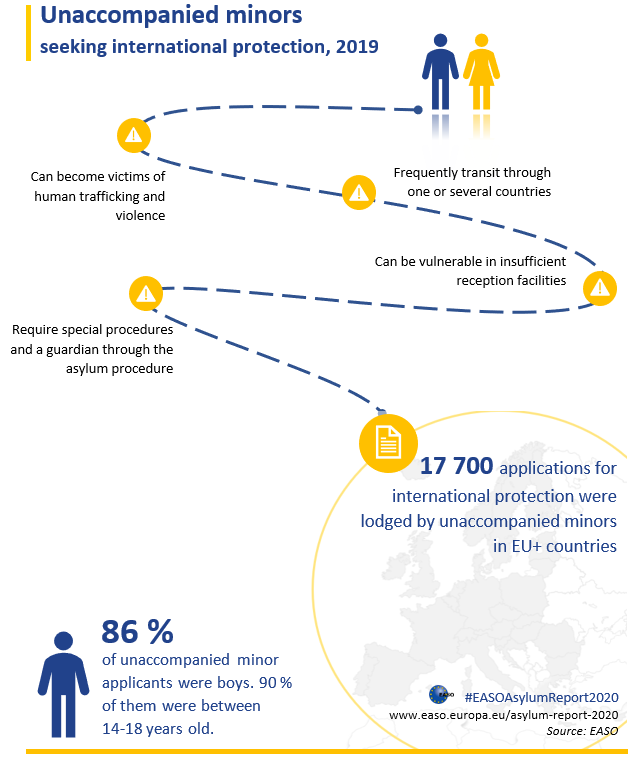| Poor reception conditions and detention of unaccompanied minor asylum applicants remained concerns in several countries |
|
|
As in previous years, many initiatives were launched in 2019 to improve the situation of vulnerable applicants. Some countries introduced measures for early identification and provision of procedural safeguards. Steps were also taken to improve or adjust age assessment methodologies, while civil society and international organisations continued to observe gaps and deficiencies in the process. Legislative and policy changes were introduced for legal representation to expedite the appointment of guardians and improve the overall quality of the guardianship system.
International and civil society organisations commented on improving the appointment process, the scope of a guardian’s tasks, communication between the representative and the child, and the guardian’s workload and training in general. To provide information more clearly, some EU+ countries adapted communication material on asylum and reception to the specific needs of minors. However, other vulnerable groups were typically not covered in these initiatives.
|
| |
|
|
In first instance procedures, only a few initiatives were reported toward improving procedures for minors and ensuring the best interest of the child. Slightly more focus seems to have been turned toward enhancing procedures for girls at risk of female genital mutilation (FGM), victims of domestic violence, victims of trafficking and lesbian, gay, bisexual, transgender and intersex (LGBTI) applicants.
In regard to reception conditions, efforts by EU+ countries in 2019 focused on adjusting capacity at facilities and increasing the quality of reception conditions for minors and vulnerable applicants; improving specialised reception facilities; and training staff managing vulnerable applicants, especially unaccompanied minors. Nonetheless, civil society organisations expressed concerns about poor reception conditions for vulnerable persons in a number of countries. In addition, the detention of vulnerable applicants, especially children, continued to raise fundamental questions in many EU+ countries, and became the subject of several rulings in European and national cour
|


